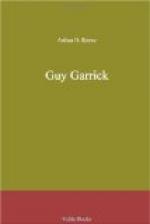As the outside door shut quickly, we found ourselves in a sort of vestibule confronted by another door. Between the two the lookout had his station.
The second door was of the “ice-box” variety, as it was popularly called at the time, of heavy oak, studded with ax-defying bolts, swung on delicately balanced and oiled hinges, carefully concealed, about as impregnable as a door of steel might be.
There were, as we found later, some steel doors inside, leading to the roof and cellar, though not so thick. The windows were carefully guarded inside by immense steel bars. The approaches from the back were covered with a steel network and every staircase was guarded by a collapsible door. There seemed to be no point of attack that had been left unguarded.
Yet, unless one had been like ourselves looking for these fortifications, they would not have appeared much in evidence in the face of the wealth of artistic furnishings that was lavished on every hand. Inside the great entrance door was a sort of marble reception hall, richly furnished, and giving anything but the impression of a gambling house. As a matter of fact, the first floor was pretty much of a blind. The gambling was all upstairs.
We turned to a beautiful staircase of carved wood, and ascended. Everywhere were thick rugs into which the feet sank almost ankle deep. On the walls were pictures that must have cost a small fortune. The furniture was of the costliest; there were splendid bronzes and objects of art on every hand.
Gambling was going on in several rooms that we passed, but the main room was on the second floor, a large room reconstructed in the old house, with a lofty ceiling and exquisitely carved trim. Concealed in huge vases were the lights, a new system, then, which shed its rays in every direction without seeming to cast a shadow anywhere. The room was apparently windowless, and yet, though everyone was smoking furiously, the ventilation must have been perfect.
There was, apparently, a full-fledged poolroom in one part of the house, closed now, of course, as the races for the day were run. But I could imagine it doing a fine business in the afternoon. There were many other games now in progress, games of every description, from poker to faro, keno, klondike, and roulette. There was nothing of either high or low degree with which the venturesome might not be accommodated.
As Warrington conducted us from one room to another, Garrick noted each carefully. Along the middle of the large room stretched a roulette table. We stopped to watch it.
“Crooked as it can be,” was Garrick’s comment after watching it for five minutes or so.
He had not said it aloud, naturally, for even the crowd in evening clothes about it, who had lost or would lose, would have resented such an imputation.
For the most part there was a solemn quiet about the board, broken only by the rattle of the ball and the click of chips. There was an absence of the clink of gold pieces that one hears as the croupier rakes them in at the casinos on the continent. Nor did there seem to be the tense faces that one might expect. Often there was the glint of an eye, or a quick and muffled curse, but for the most part everyone, no matter how great a loser, seemed respectable and prosperous. The tragedies, as we came to know, were elsewhere.




